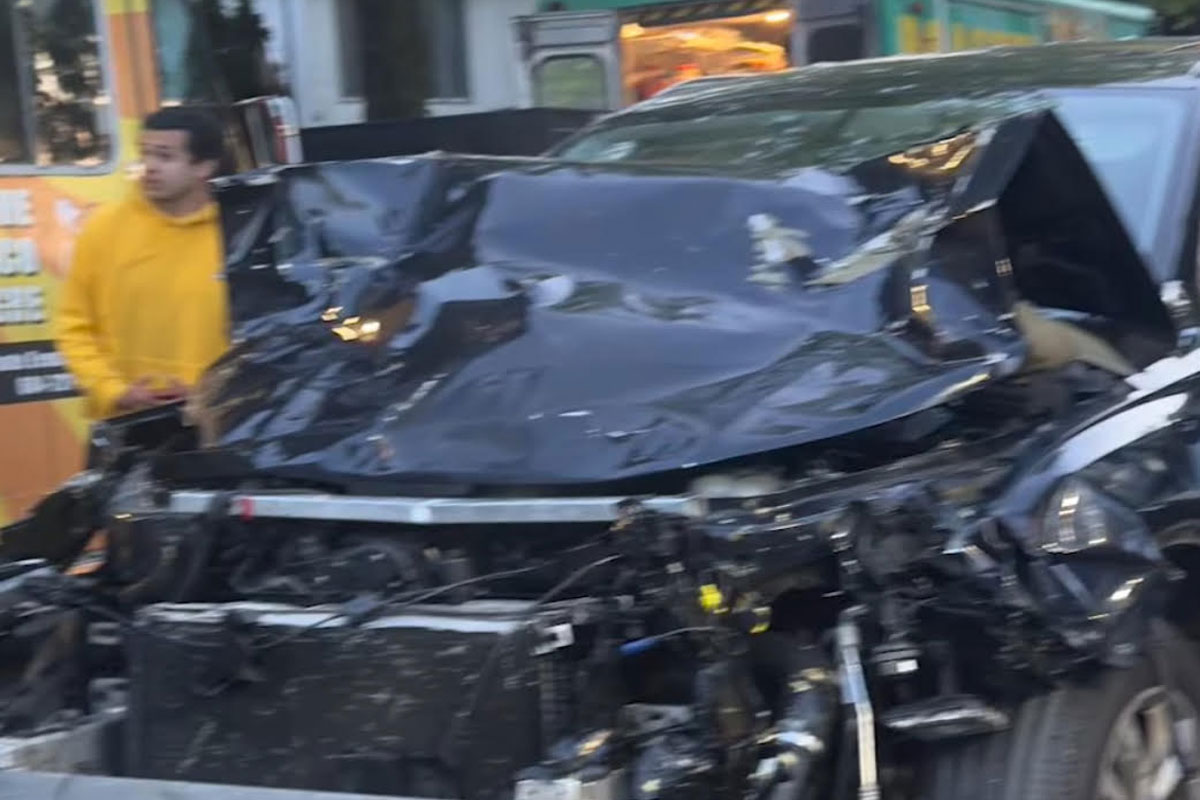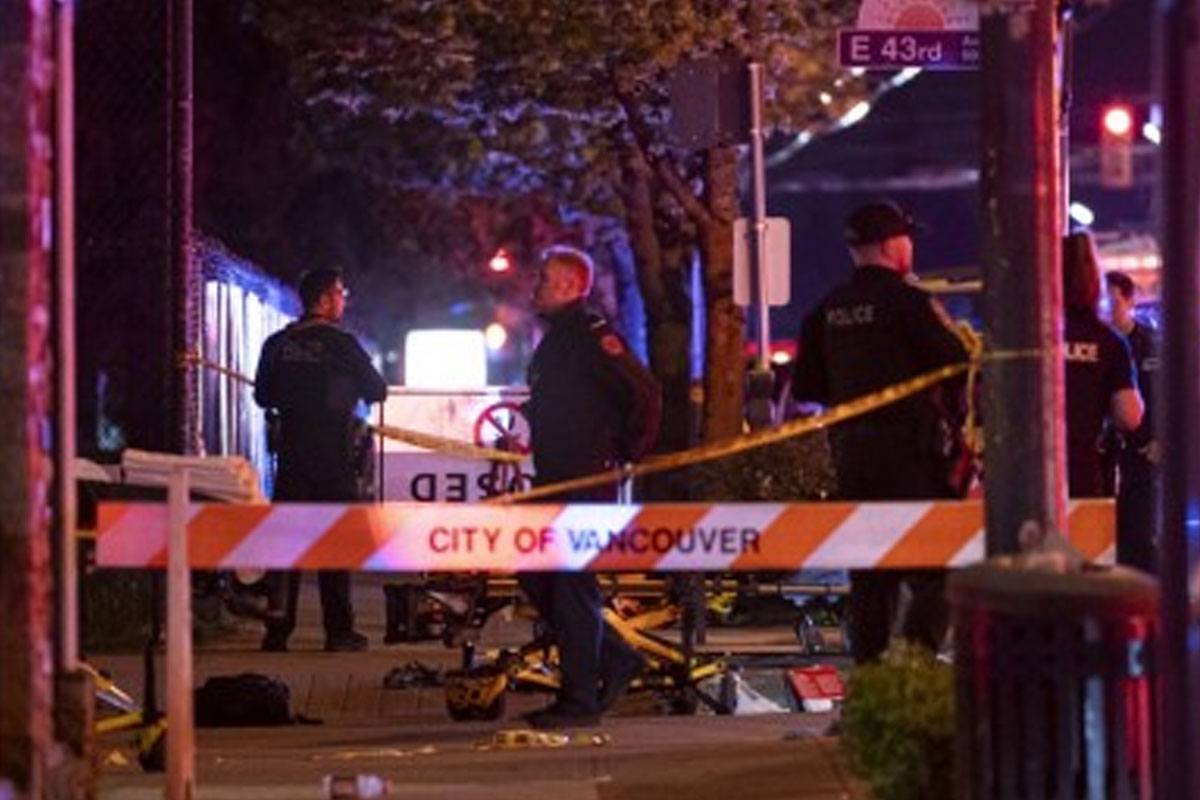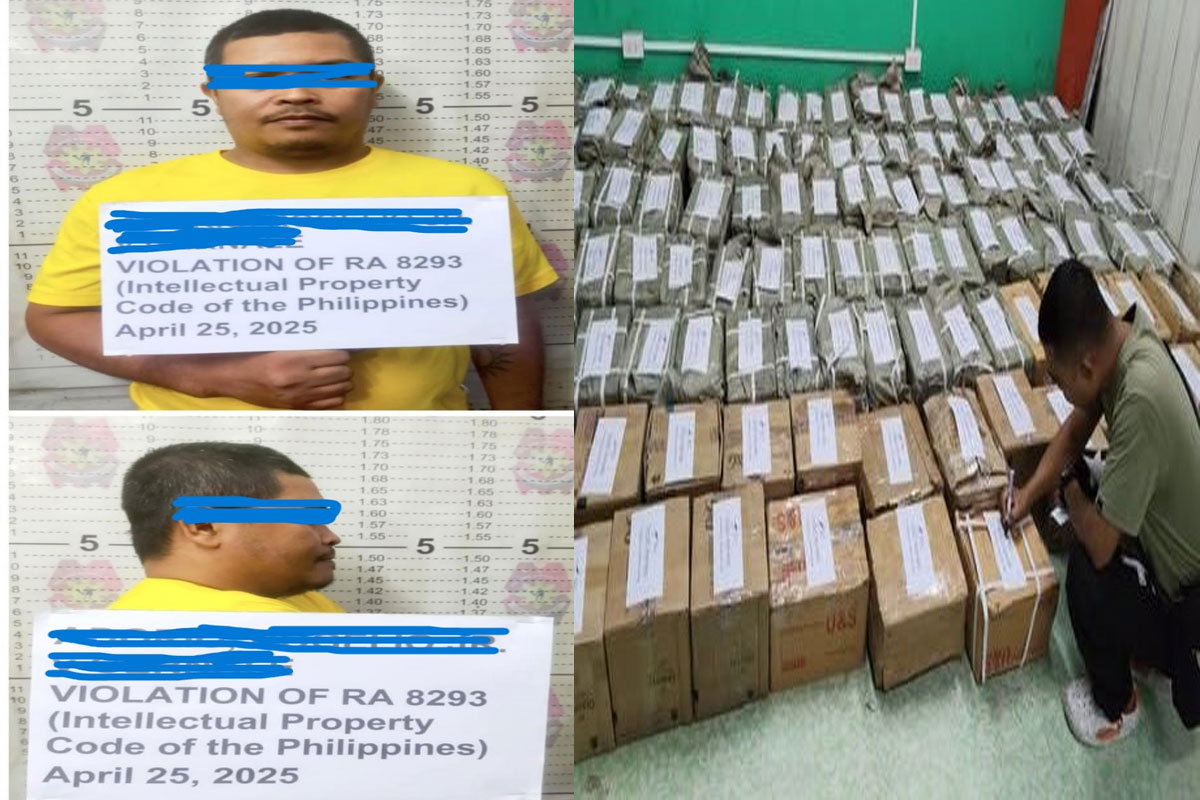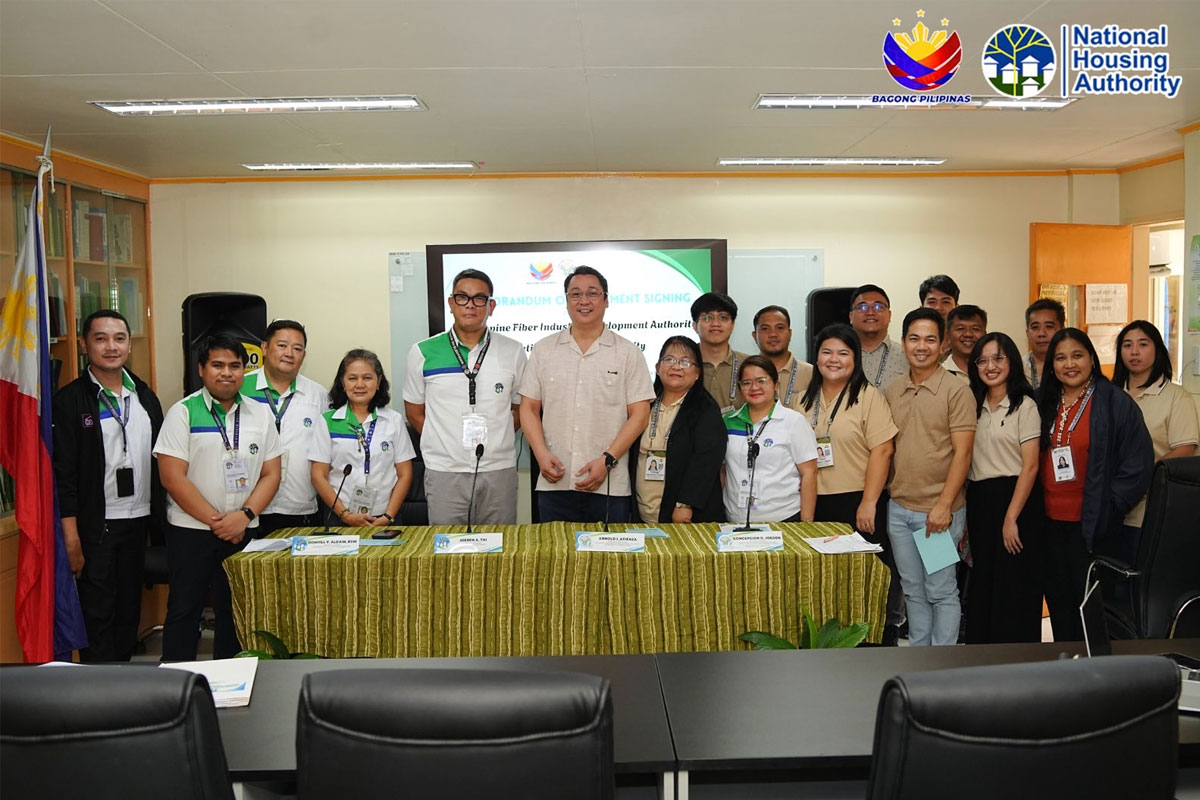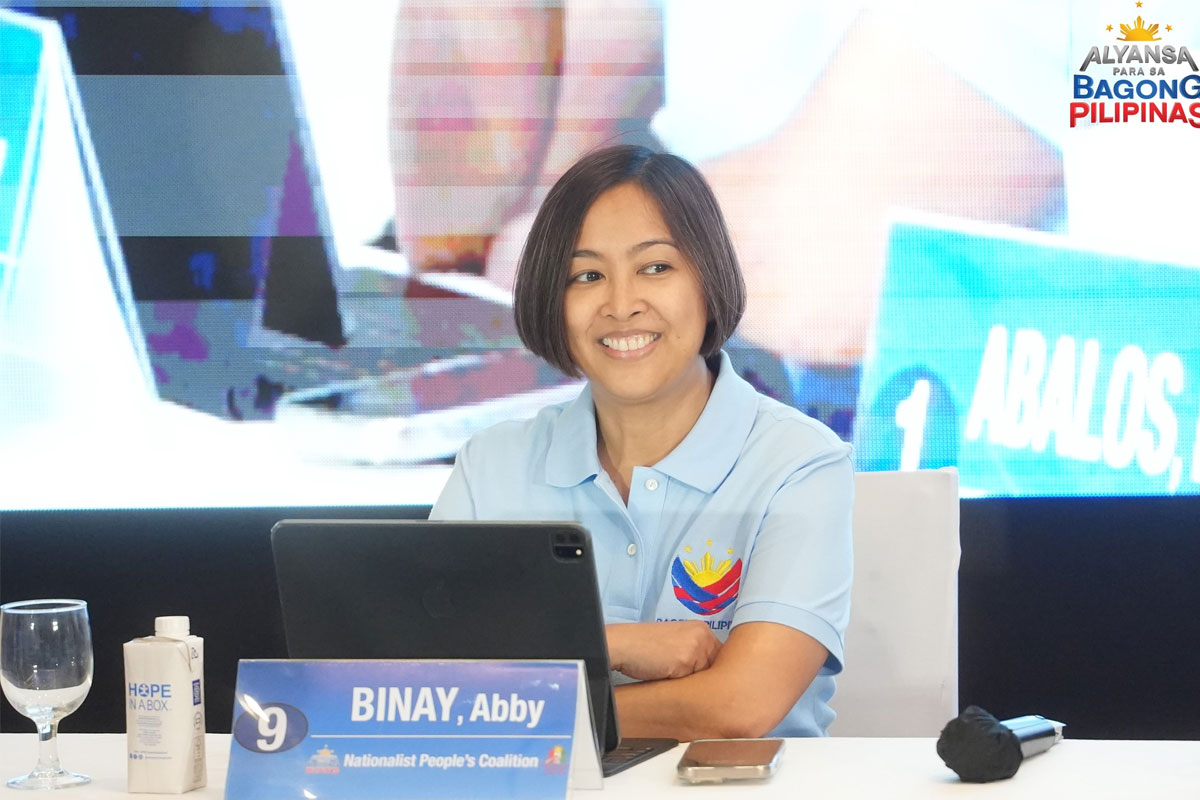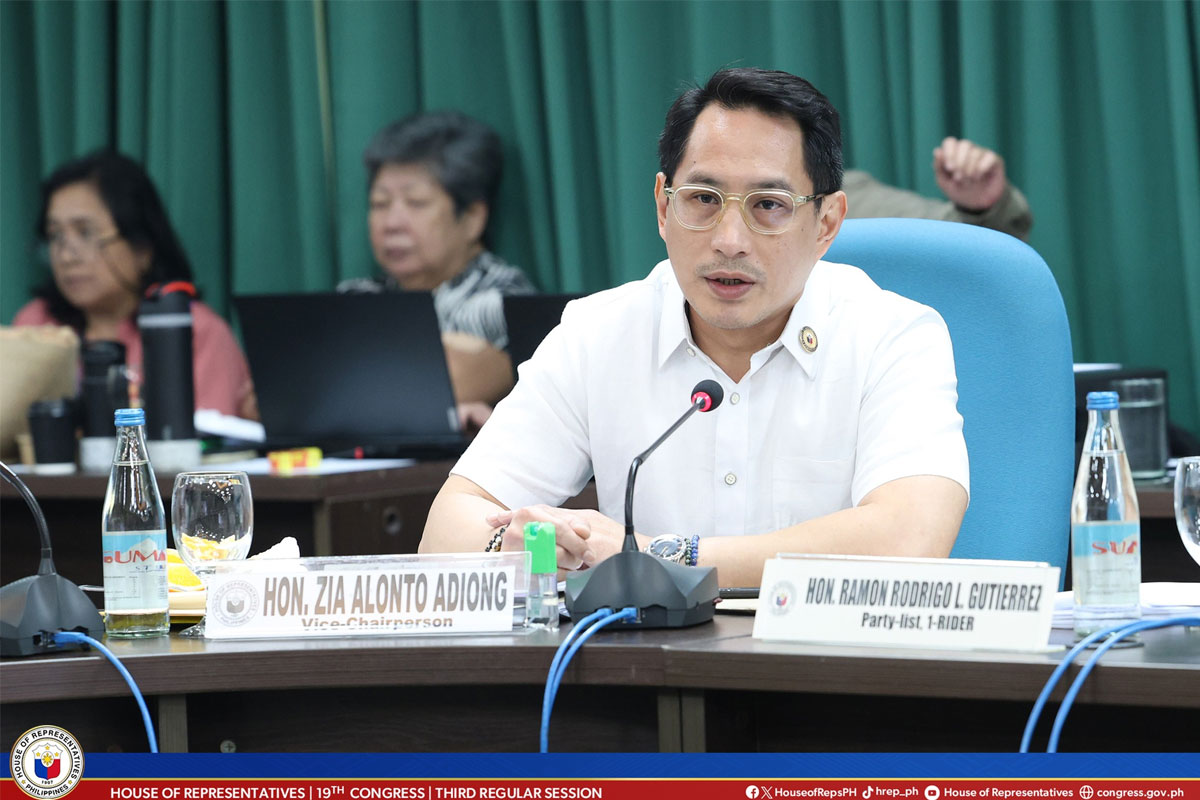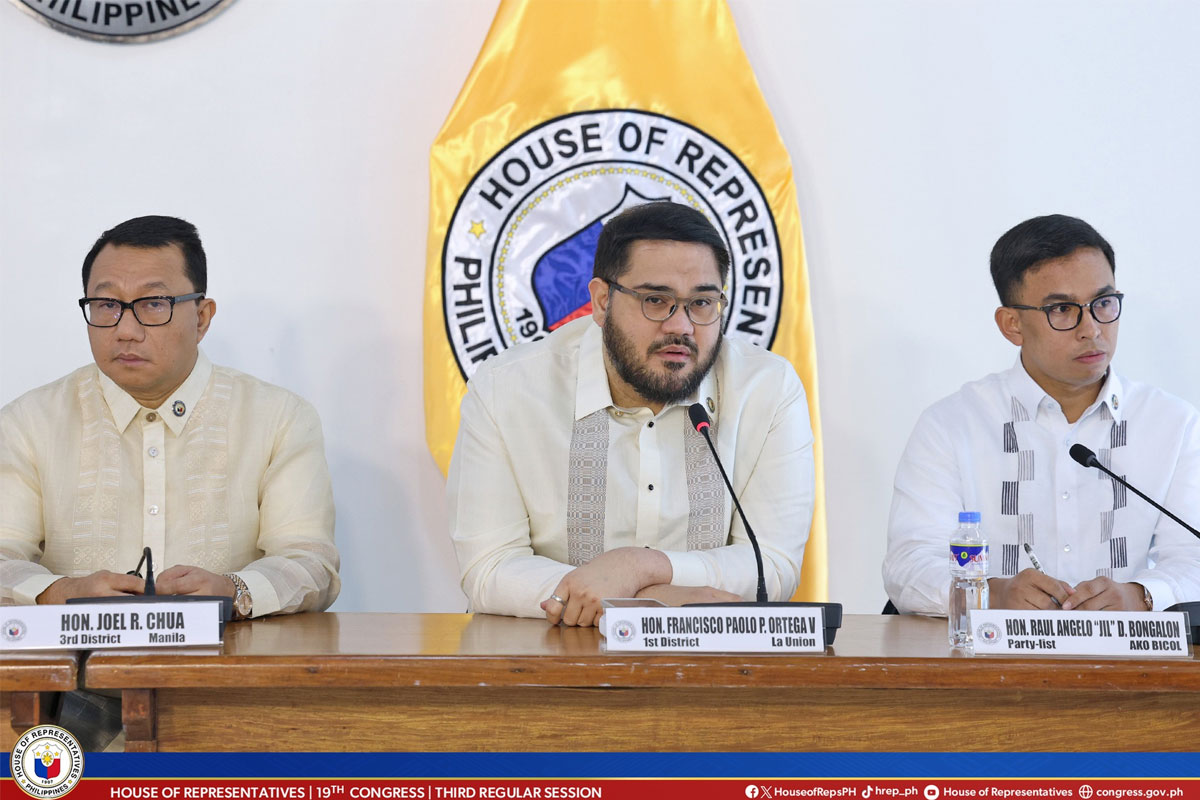
Azurin: PNP, Indon police step up drive vs transnational crime
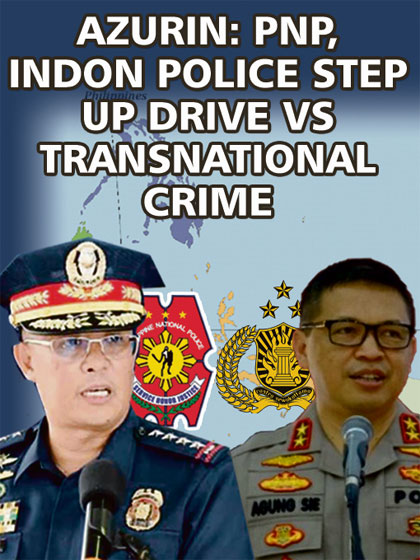 TOP officials of the Philippine National Police (PNP) and the Indonesian National Police have agreed to further strengthen their cooperation to battle transnational crimes affecting the two Southeast Asian countries, the Journal Group learned.
TOP officials of the Philippine National Police (PNP) and the Indonesian National Police have agreed to further strengthen their cooperation to battle transnational crimes affecting the two Southeast Asian countries, the Journal Group learned.
In a recent meeting, PNP chief, General Rodolfo S. Azurin Jr. led his men in talking with 13 officials of the INP led by Agung Setya I.E, the Indon police force’s deputy for operations affairs, to reaffirm their respective commitment of cooperation, capacity-building and combating transnational crimes.
The agreement to launch a much aggressive drive against drug, weapons and human smuggling, piracy and other transnational crimes taking place in both countries was sealed thru a a Memorandum of Understanding signed at the PNP National Headquarters in Camp Crame.
As espoused in the Association of Southeast Asian Nations or ASEAN Declaration on Transnational Crime, all member-countries have agreed to strengthen regional commitment and capacity to combat transnational crimes which include terrorism, drug trafficking, arms smuggling, money-laundering, trafficking in persons and piracy.
Apart from Indonesia and The Philippines, the other ASEAN member-countries are Brunei, Cambodia, Laos, Malaysia, Myanmar, Singapore, Thailand and Vietnam.
All 10 countries deal with the preventive, enforcement and operational aspects of cooperation against transnational crime and have been actively involved in sharing of knowledge and expertise on policing, enforcement, law, criminal justice and transnational and international crimes which also include counterfeiting of goods, wildlife and cultural property and cybercrimes.
The Indon police delegation went to Camp Crame to discuss mutual cooperation between the two countries on combating transnational crimes and promote stronger and durable Philippines-Indonesia relations on law enforcement and regional security to spur domestic economic growth in both countries.
The INP officials flew to the country to conduct bilateral discussion meetings in preparation for the upcoming Joint Committee Meeting for 2023 and to set plans for the joint Maritime Law Enforcement Exercises (MARLEX) in 2023.
“May this undertaking serve as a venue to strengthen our mechanisms for integration and joint civil relations operations towards realization of our aspirations for peace, security, and progress of our nations in the finest ASEAN tradition,” Gen, Azurin said.
The high-level visit and bilateral meeting was also attended by PNP Director for Intelligence, Major Gen. Benjamin C. Acorda Jr., PNP Director for Investigation and Detective Management , Maj. Gen. Eliseo DC Cruz, PNP Director for Operations, Maj. Gen. Emmanuel B. Peralta; PNP Director for Plans, Maj. Gen. Bernard M. Banac; PNP Director for Police-Community Relations, Maj. Gen. Mario A. Reyes; PNP Director for Human Resource and Doctrine Development, Maj. Gen. Jon A. Arnaldo; PNP Criminal Investigation and Detection Group director, Brigadier Gen. Ronald O. Lee; PNP Maritime Group director, Brig. Gen. Harold B. Tuzon; and PNP Academy Director, Maj. Gen. Eric E. Noble.
“I am optimistic that this meeting will keep the Philippines and Indonesian relationship strong especially in creating effective strategies as partners in making the region a place where there is safety, security, and prosperity for all,” Gen. Azurin said.
Initially, ASEAN member-countries were concerned with the drug trafficking and abuse. However, with the expansion and diversification of transnational crime to include terrorism, arms smuggling, money laundering, illegal migration, and piracy, and the highly-organized nature of such crimes, ASEAN has intensified its efforts to fight these crimes.
The ASEAN Chiefs of National Police or ASEANAPOL which count Gen. Azurin as among its members, deals with the preventive, enforcement and operational aspects of cooperation against transnational crime.
Since its creation, ASEANAPOL has been actively involved in sharing of knowledge and expertise on policing, enforcement, law, criminal justice, and transnational and international crimes. It has established three ad-hoc commissions dealing with drug trafficking, arms smuggling, counterfeiting, economic and financial crimes, credit card fraud, extradition and arrangements for handing over of criminal offenders and fugitives.
It has also taken initiatives to combat new forms of transnational crime, such as fraudulent travel documents, phantom ship frauds, product counterfeiting and piracy.



